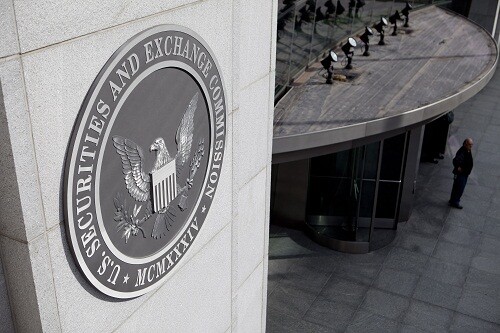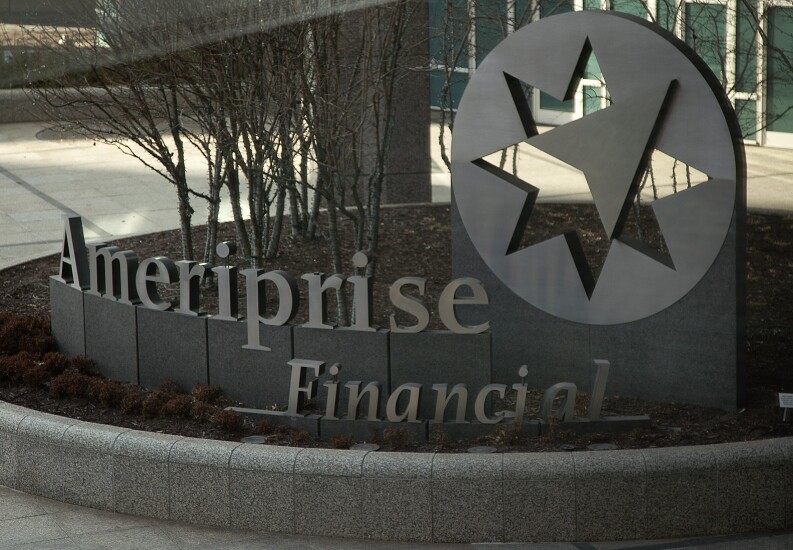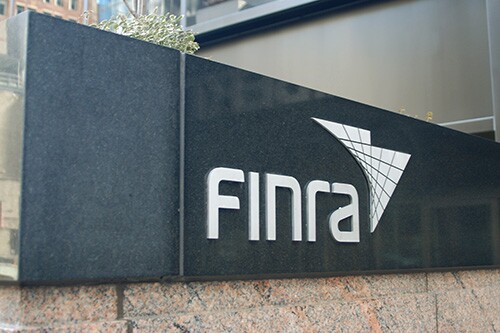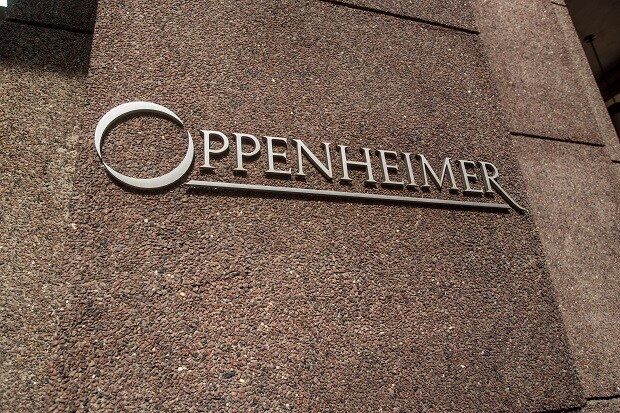
Holding the industry accountable

FINRA: Merrill's system failures produced millions of inaccurate trading records
Staffers at FINRA's Department of Market Regulation identified a number of reporting errors in the data Merrill submitted to FINRA's Order Audit Trail System, or OATS, and cited the firm for failures relating to its supervision practices and its maintenance of books and records.
In a statement announcing the settlement, Thomas Gira, executive vice president and head of market regulation at FINRA, notes the importance of maintaining accurate data through the OATS market-surveillance program to detect signs of market manipulation and other irregularities.
Merrill settled the case without admitting or denying the charges, but accepted the entry of FINRA's findings into its disciplinary record, according to the regulator.

SEC: Supervisory failures in UBS’ $548M sale of complex product
Investors depend on their brokers' education and knowledge, the SEC's director of enforcement, Andrew Ceresney, said in a press conference.
"That is especially true where a product is complex," he said, "and that is where UBS failed."
Without admitting or denying guilt in the case, UBS agreed to pay the fine. The firm also offered to implement new improved procedures for offering these products, Ceresney said.

SEC: Merrill to pay $12.5M for lapses that caused mini-flash crashes
The bank set its internal trading limits too high, so they were ineffective and caused market disruptions on at least 15 occasions from late 2012 to mid-2014, according to the SEC. They included 99% drops in the stocks of Anadarko Petroleum on May 17, 2013, and Qualys on April 25, 2013, the regulator says.
Another order led to a drop of almost 3% in Google’s stock in less than a second on April 22, 2013.
“Despite multiple red flags, Merrill Lynch failed to evaluate adequately whether its controls were reasonably designed and failed to fix the problems quickly,” Robert Cohen, co-head of the market abuse unit at the SEC’s division of enforcement, said in a statement.
The fine is the largest ever by the agency for violations of the market access rule, which governs brokers’ risk-management controls. Bank of America agreed to the SEC’s order without admitting or denying the findings.

FINRA fines Ameriprise $850K for supervisory failures
The registered rep served as a sales assistant and office manager at Ameriprise, and converted the funds from accounts belonging to five Ameriprise clients – who were also the office manager's family members, according to FINRA.
The office manager's actions went undetected from October 2011 to September 2013, FINRA charges. FINRA did not name the office manager, who was barred from the industry in 2014, according to the regulator.
In 2013, another Ameriprise employee discovered evidence in a trash can that the office manager had been practicing forging the signature of a family member, leading to the discovery of his alleged scheme, according to FINRA. The regulator charges that Ameriprise failed to adequately follow-up on red flags as well as investigate possible signature irregularities. For example, four wire requests were flagged for further review, but the firm failed to follow through with those reviews, according to FINRA.
Ameriprise neither admitted nor denied FINRA's charges, but consented to the regulator's findings, according to FINRA.

FINRA: Hilliard Lyons to repay $1M for not waiving mutual fund fees
In the latest settlement between a brokerage and the regulator over failures to waive such fees, Hilliard Lyons, after an internal investigation, determined that its advisers had been selling retirement plans and charitable organizations mutual fund shares that carried front- or back-end sales charges or recurring expenses and fees.
Those clients, Hilliard concluded, should have received waivers of the sales charges associated with Class A shares of the mutual funds, but were instead sold Class A shares that carried the fees or Class B or C shares with back-end and higher ongoing expenses.
In December 2015, Hilliard approached FINRA with its findings, admitting to the regulator that, over a six-year period, its advisers overcharged an estimated 1,060 clients around $716,000 in sales charges that should have been waived. The firm has accepted a censure from FINRA, committed to improve its supervisory procedures and adopted a written plan to identify clients that were overcharged and pay out more than $812,000 in restitution, accounting for the overcharges and interest.
With the settlement, Hilliard Lyons joins the ranks of brokerage houses that FINRA has hit for failing to waiver fees on Class A mutual fund shares. That list includes Baird, Merrill Lynch, Edward Jones and others.

FINRA: Morgan Stanley must pay indie adviser $2.5M related to defamation claim
Arbitrators granted the award in response to Dale Cebert's claim the firm engaged in a campaign of "defamation... libel and slander" in connection to his termination, according to the FINRA dispute resolution.
Cebert, who runs a practice in The Villages, Florida, had joined Morgan Stanley in July 2012 after a long career as an independent adviser. The plan was for Cebert's practice to become a new branch office with Morgan, but there were problems from the outset, Cebert says.
"We had a very bumpy transition," he recalls. "We came from the independent world, joining the wirehouse world, and really the transition was something that did not go well, and I think when that transpired it just caused the company to rethink the ... deal they had put into place."
In an email, a spokeswoman for Morgan Stanley offered a terse statement on the matter: "We disagree with the panel's decision regarding this case."

FINRA fines Deutsche Bank record $6M for late and inaccurate reporting
Failures in reporting systems led Deutsche Bank to file data reports that misreported or omitted critical information on more than one million trades, according to FINRA.
The errors occurred from 2008 to 2015 in the bank's submissions of blue sheets, filings that provide regulators key information about securities transactions and which help authorities identify illegal activity or other misconduct.
FINRA says that firms typically have 10 business days to file a blue sheet when the regulator requests it. Deutsche Bank, however, has frequently missed deadlines, FINRA says. From January 2014 to August 2015, about 40% of the bank's blue sheets were filed late. FINRA says that the bank's mistakes were particularly egregious last summer, when over 90% of Deutsche Bank's blue sheets failed to meet regulatory deadlines.
"Incomplete and inaccurate blue sheet data compromises our ability to identify individuals engaging in insider trading schemes and other fraudulent activity. Firms must invest the resources necessary to ensure that they are providing complete and accurate blue sheet data whenever requested – without exception," Cameron Funkhouser, head of FINRA's Office of Fraud Detection and Market Intelligence, said.

FINRA sanctions Oppenheimer $2.9M for unsuitable sales of nontraditional ETFs
The regulator says that it issued a notice in 2009 to broker-dealers regarding the risks and complexities of nontraditional ETFs. FINRA says Oppenheimer failed to implement these policies and that the firm's advisers "continued to solicit retail customers to purchase nontraditional ETFs and continued to execute unsolicited non-traditional ETF transactions even though the customers did not meet Oppenheimer's stated criteria."
In the four years following the regulatory notice, Oppenheimer's registered representatives executed more than 30,000 nontraditional ETF transactions in approximately 1,700 client accounts, FINRA says. Those transactions totaled approximately $1.7 billion, according to the regulator.
"Written procedures are worthless unless accompanied by a program to enforce them," Brad Bennett, FINRA's chief of enforcement, said in a statement. "While Oppenheimer's procedures prohibited solicitation of nontraditional ETFs, the absence of any meaningful compliance effort resulted in its representatives continuing to solicit unsuitable nontraditional ETF purchases, including a number involving elderly investors."
Oppenheimer accepted FINRA's findings without admitting or denying the charges, according to FINRA.

FINRA fines Raymond James record $17M for compliance failures
The failures occurred in Raymond James' employee and independent channels, which were fined $8 million and $9 million respectively. FINRA also fined former Raymond James & Associates compliance officer Linda Busby $25,000 and suspended her for three months.
Raymond James has been a fast-growing firm through recruiting top wirehouse advisers and making key acquisitions, such as brokerage firm Morgan Keagan. The St. Petersburg, Fla-based firm recently reported that it had roughly 6,700 advisers – making it almost as large as UBS.
However, FINRA says the firm's growth spurt from 2006 to 2014 wasn't matched by commensurate growth in the firm's anti-money laundering compliance systems and processes.
The regulator says Raymond James was relying "upon a patchwork of written procedures and systems across different departments to detect suspicious activity," and that some red flags went unnoticed.
Brad Bennett, FINRA's Executive Vice President and Chief of Enforcement says Raymond James' missteps are particularly "egregious" because the firm's independent broker-dealer had been fined for similar issues in 2012.
The firm neither admitted nor denied the charges, but consented to the entry of FINRA's findings.





